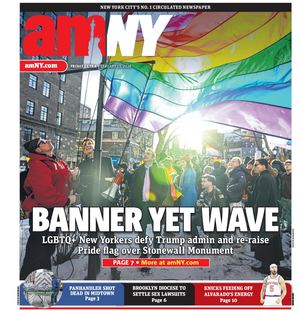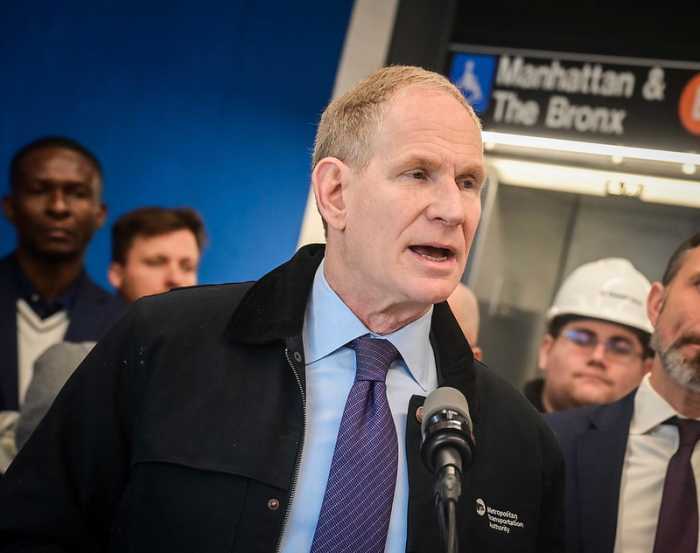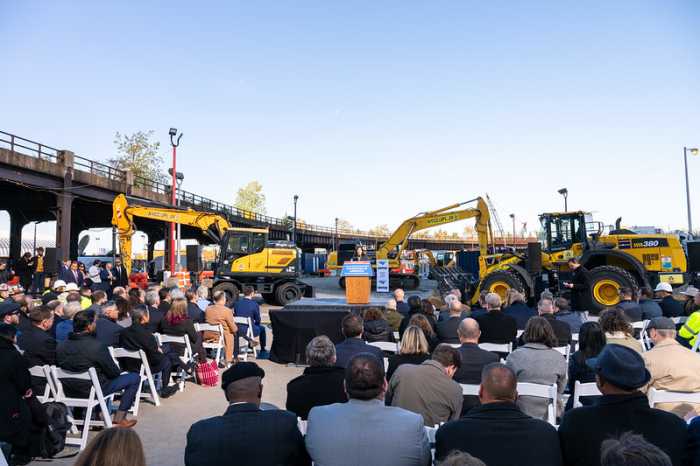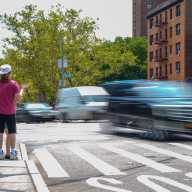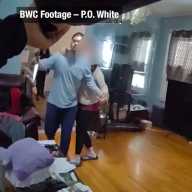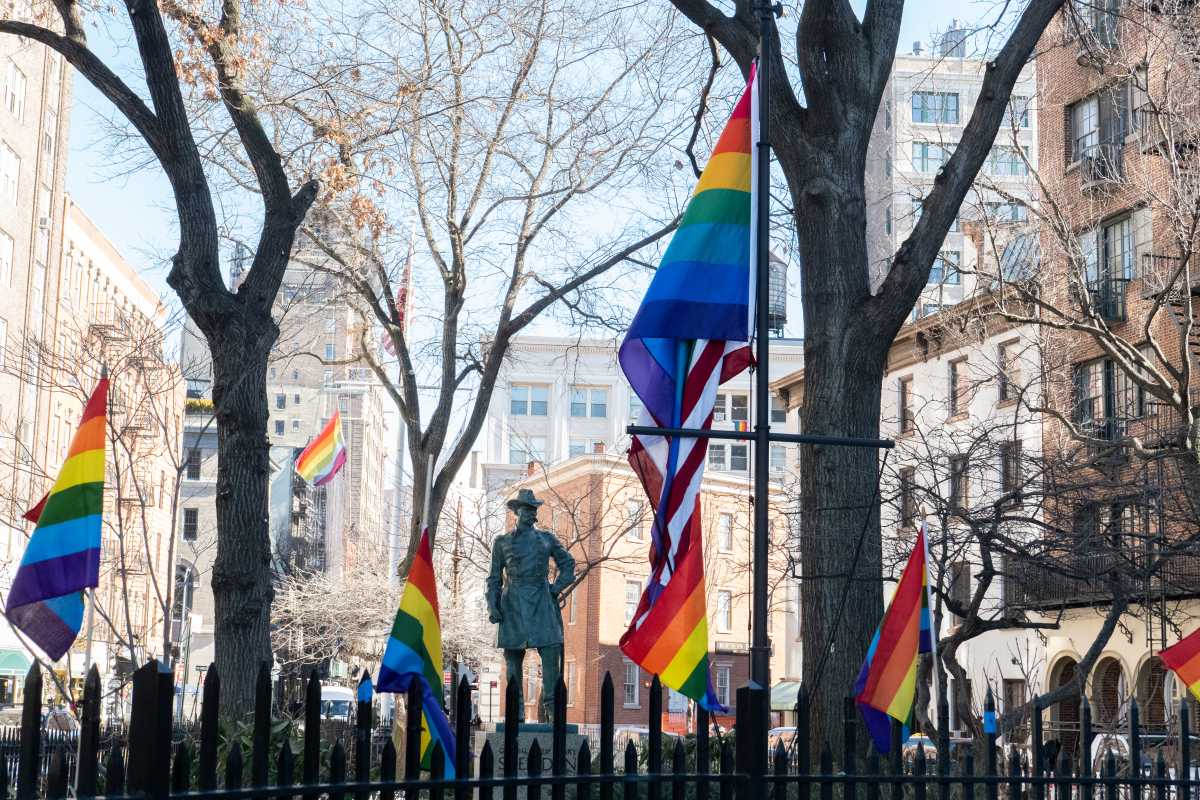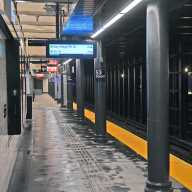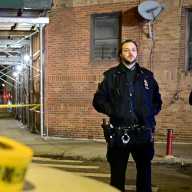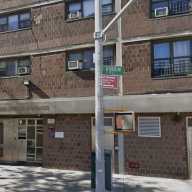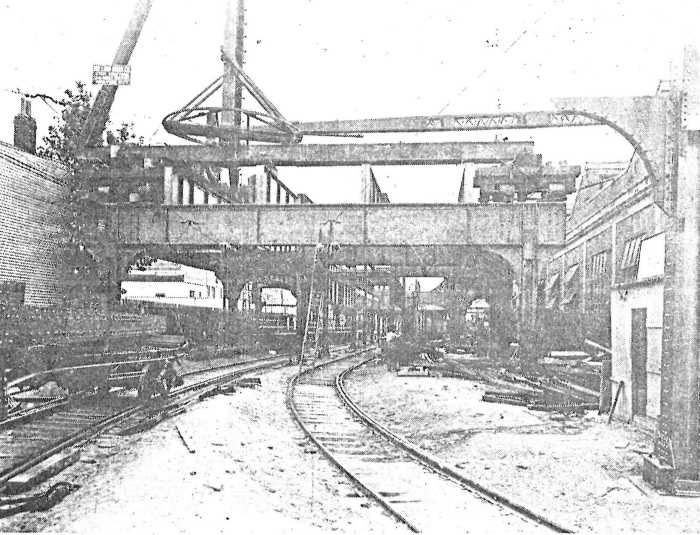West Side residents in Manhattan are furious over a private bus company’s not-so-idle threat to seek an exemption from NYC traffic idling laws, amNewYork learned on Tuesday.
Academy, a company known in the metro area for its charter and group tour buses, is wreaking daily havoc, nearby residents say, by leaving engines running while idling on West 30th Street near 9th and 10th Avenues. Adding to its idle behavior, the company is simultaneously seeking an exemption from NYC’s anti-idling regulations.
“Academy submits this application for your consideration because Academy has done what it can to eliminate unnecessary idling and to reduce the impact of the emissions our buses produce,” the bus company wrote in its variance request to the NYC Department of Environmental Protection (DEP) in September. “However, providing bus service to visitors and residents of New York City involves some idling, which is necessary to keep essential systems powered as required by federal regulations.”
It was not immediately clear why Academy buses use this neighborhood to idle. The location is about 10 blocks south of the Port Authority Bus Terminal.
Climate control, wheelchair lifts and onboard cameras are some of the systems that need to stay on when a bus is idling, Academy wrote in the application.
amNewYork contacted Academy to further inquire about their request and is awaiting a response.
A spokesperson for the DEP, which enforces the city’s anti-idling laws, confirmed that Academy’s variance request is pending and still under review.
“As part of the process, DEP is considering comments received during the Oct. 29 hearing and in writing,” the spokesperson said. “In addition, DEP is evaluating the feasibility of electrification or auxiliary power units (APUs) for these bus types.”
In NYC, with some exceptions, it is illegal for a vehicle to idle for more than three minutes or one minute if it is adjacent to a school. The law applies to both buses and trucks. Fines for not abiding range from $350 to $2,000.
Meanwhile, Hell’s Kitchen residents are not buying into the bus company’s excuses for the practice, dismissing them as “woefully inadequate.”

The issue has become a major flashpoint for neighbors concerned about air quality and noise pollution. The buses tend to be located near the dormitories housing students from the Fashion Institute of Technology (FIT), which adds to the scope of the nuisance.
“We strongly oppose the granting of an exemption to the idling law to Academy bus because their justification is woefully inadequate,” Jesse Greenwald, co-chair of Manhattan Community Board 4’s transportation planning committee, said. “Our district is host to a large number of bus companies and has the third worst air quality in the city.”
According to the American Lung Association, Hell’s Kitchen and some nearby areas received an “F” grade for ozone. The grade is based on the number of days a county’s air reaches unhealthful levels on the Air Quality Index. However, the organization monitors other types of particle pollution in the area, which received passing grades.
Greenwald explained that other bus companies have adopted “simple solutions” to help reduce idling.
“First is to equip all buses with a turn-off at three minutes, and to train the drivers on using that,” he said. “The solution was recently adopted by the attorney general of Washington, D.C., and has been implemented by many intercity carriers in that area.”
On Oct. 9, Brian Schwalb, D.C.’s attorney general, said local charter bus company DC Trails would pay $85,000 and program its bus engines to shut off after three minutes of idling as part of a settlement to address air pollution violations.
“This settlement holds DC Trails accountable for its persistent violations of the District’s air pollution regulations, including requiring it to implement policies and procedures designed to protect air quality by preventing illegal bus idling,” Schwalb said. “The Office of the Attorney General will continue working closely with the Department of Energy and Environment to enforce our environmental laws, stop pollution, and protect District residents.”
He also suggested the use of an auxiliary engine, which can keep certain onboard systems running, even if the main engine is shut off.
However, in its variance request, the Academy stated that it has not been able to find auxiliary products “capable of providing power for the critical onboard system.”

Manhattan Council Member Shaun Abreu said Academy is “one of the worst polluters” in his district of Upper Manhattan, adding that it has racked up over 100 idling violations for “spewing fumes” outside a daycare center on W. 120th Street.
“New York City’s anti-idling law has been on the books for over fifty years for one reason: to protect New Yorkers from exactly this kind of pollution,” Abreu said. “The law already gives them three minutes, which should be more than enough time for a bus operator that maintains their vehicles properly. This issue is about whether our city stands up for public health or gives in to corporate convenience.”
Bryce Stack, who lives in Chelsea, said he complained about the issue multiple times to DEP, but the buses still idle.
“They haven’t stopped. I’m frankly very disappointed that they’re going for this variance,” he said. “I’m really concerned if they get it, all the other bus companies will follow suit.”
Meanwhile, Christine Berthet, a local activist in the area, said in a W42ST article that the exemption would worsen air quality in the area.
“And it risks undermining one of the city’s most effective environmental laws,” she added.
The DEP is continuing to review the variance request; however, no date has been set for when a decision will be made. In the meantime, community sentiment appears opposed to granting the exemption, setting the stage for a potential legal battle.
